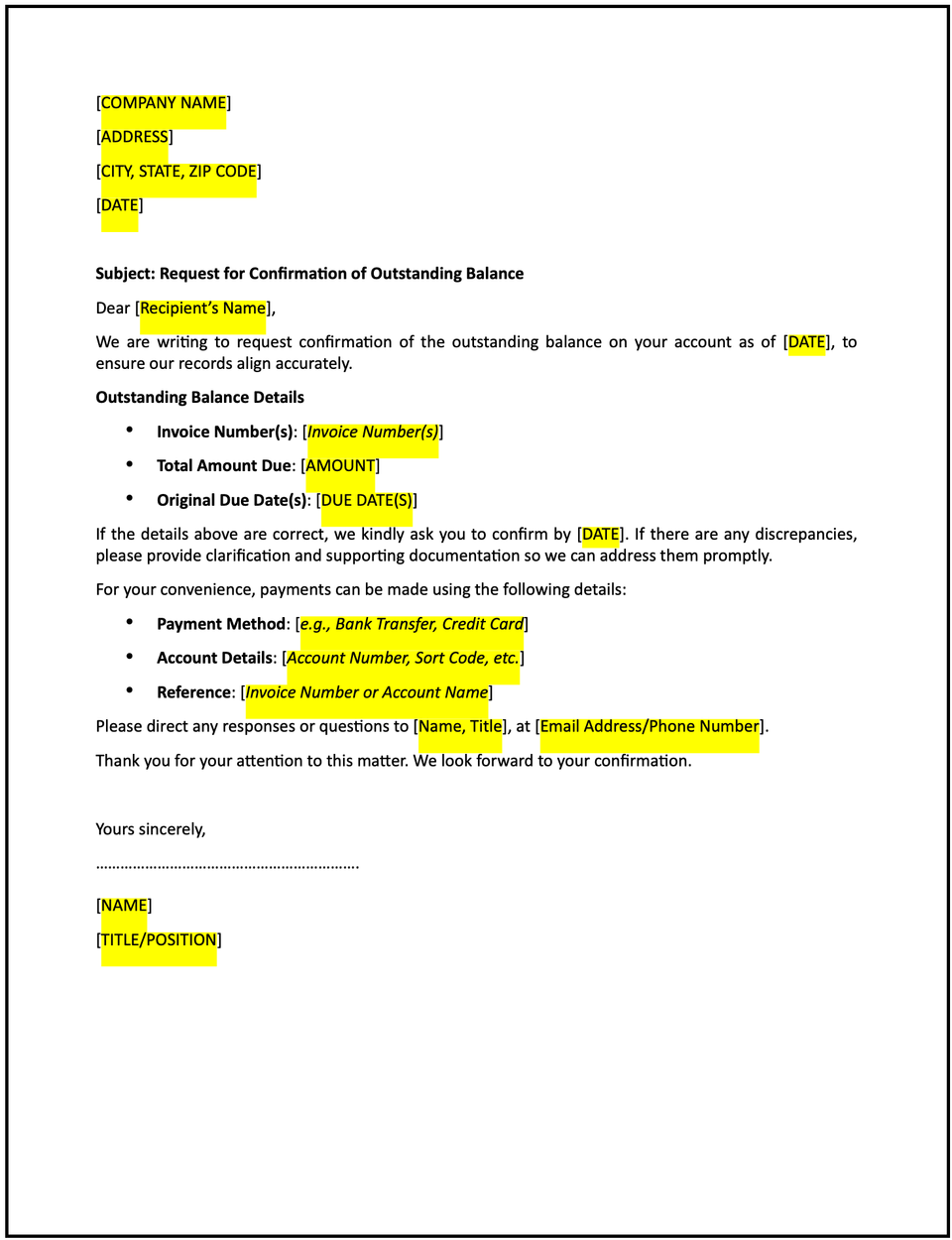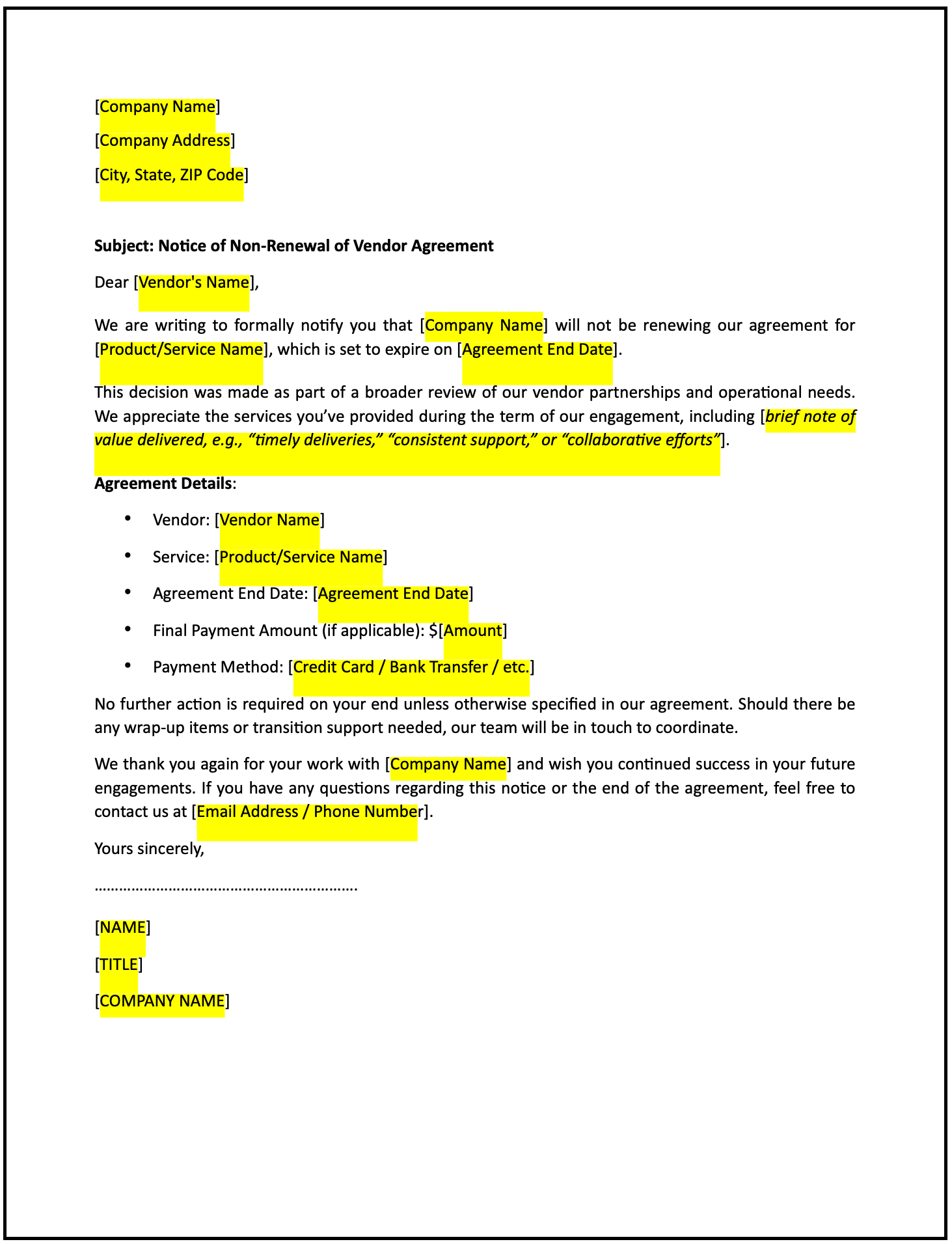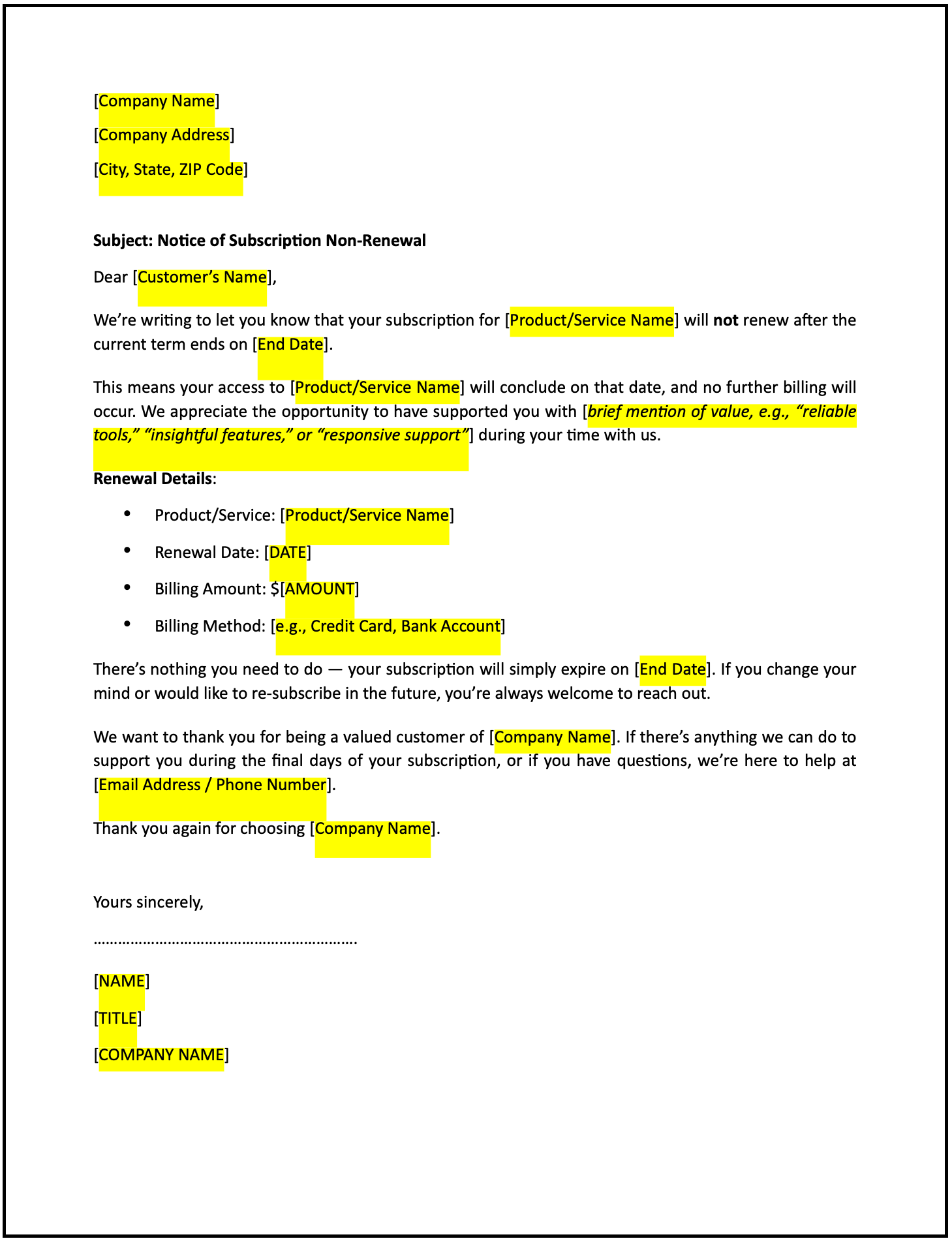Letter of request for confirmation of outstanding balance: Free template

Letter of request for confirmation of outstanding balance
A letter of request for confirmation of outstanding balance is a formal communication used to verify the amount due on an account or invoice. This letter ensures transparency, avoids misunderstandings, and helps maintain accurate financial records while fostering a professional relationship.
How to use this letter of request for confirmation of outstanding balance
- Open with an introduction: Address the recipient respectfully and state the purpose of the letter—to request confirmation of the outstanding balance on an account or invoice.
- Provide account details: Include specific information such as the account number, invoice number, and billing period for clarity.
- Specify the request: Clearly state the need for confirmation of the outstanding balance and any associated charges or adjustments.
- Reference supporting documents: Mention any attached documents, such as previous statements, invoices, or receipts, that provide context or history.
- Request timely confirmation: Politely ask the recipient to verify and confirm the balance within a specified timeframe.
- Offer cooperation: Express willingness to provide additional information or clarification if required.
- Maintain a professional tone: Ensure the letter is clear, respectful, and solution-oriented.
- Provide contact information: Include details for the recipient to respond or reach out with questions.
Benefits of using a letter of request for confirmation of outstanding balance
This letter ensures a structured and professional way to verify outstanding balances while maintaining clear communication and accurate records. Here’s how it helps:
- Promotes accuracy: Verifying balances ensures financial records are correct and up to date.
- Reflects professionalism: A well-crafted letter demonstrates respect and attentiveness to financial obligations.
- Encourages resolution: Addressing discrepancies early prevents potential disputes.
- Supports financial tracking: Clear communication fosters efficient management of accounts.
- Maintains relationships: A respectful approach strengthens trust and collaboration.
Tips for writing an effective letter of request for confirmation of outstanding balance
- Be specific: Clearly describe the account or invoice details, including amounts and relevant dates.
- Use professional language: Maintain a respectful and solution-focused tone to encourage cooperation.
- Include supporting evidence: Mention any attached documents that provide context or validate the request.
- Request actionable next steps: Politely ask for confirmation and specify a deadline for response.
- Keep it concise: Focus on the key points while ensuring the tone is professional and collaborative.
Frequently asked questions (FAQs)
Q: What details should I include in this letter?
A: Include account or invoice numbers, billing periods, outstanding amounts, and any relevant supporting documents.
Q: Should I personalize the letter?
A: Yes, addressing the recipient directly ensures clarity and demonstrates attentiveness.
Q: Who typically sends this letter?
A: Business owners, financial managers, or account representatives typically send this letter.
Q: How formal should this letter be?
A: The tone should be professional and courteous, focusing on clarity and resolution.
Q: When should this letter be sent?
A: Send the letter when there is uncertainty or need for verification of the outstanding balance.
Q: Can this letter request additional account details?
A: Yes, you can request further account history or transaction details if necessary.
Q: Is acknowledgment from the recipient required?
A: Yes, requesting acknowledgment ensures the recipient is aware of and working on the confirmation.
This article contains general legal information and does not contain legal advice. Cobrief is not a law firm or a substitute for an attorney or law firm. The law is complex and changes often. For legal advice, please ask a lawyer.


